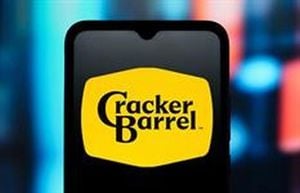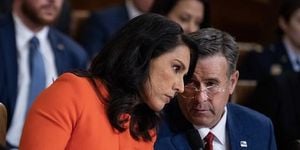The confirmation hearings for Robert F. Kennedy Jr. as the nominee for the U.S. Department of Health and Human Services have intensified scrutiny surrounding his involvement and statements related to the deadly measles outbreak in Samoa back in 2019. The outbreak, which claimed the lives of 83 individuals—most of whom were young children—is linked to Kennedy's controversial stance on vaccines, particularly during his trip to Samoa four months prior to the outbreak being declared.
Samoa's Prime Minister, Fiame Naomi Mataʻafa, openly criticized Kennedy, expressing surprise at his nomination considering his history of promoting vaccine misinformation. "If he is the messenger for anti-vaxxers, as a leader, I do not agree with him," Fiame declared, emphasizing the devastating impact the outbreak had on her country. The measles epidemic was fueled by waning vaccination rates, which plummeted after tragic incidents stemming from vaccination errors previously, leading to pervasive anti-vaccine sentiment.
During the confirmation hearings, Kennedy faced pointed questioning from lawmakers about his role and influence during this crisis. Senator Ron Wyden was particularly vocal, accusing Kennedy of contributing to the fatalities by spreading lies about vaccines during his visit. According to Wyden, Kennedy's anti-vaccine rhetoric not only undermined public health efforts but also perpetuated dangerous misconceptions about vaccination safety.
Kennedy defended himself by stating, "I went there for nothing to do with vaccines. I never gave any public statements about vaccines," insisting the purpose of his trip was to assist with digitizing health records. He maintained the vaccination rates were already low upon his arrival and denied having incited anti-vaccine sentiments.
Despite Kennedy's assertions, health experts and officials from Samoa have openly claimed otherwise. Dr. Alec Ekeroma, the Director General of Samoa’s Health Ministry, explained how Kennedy's messaging had galvanized local anti-vaccine advocates, aggravative pre-existing skepticism toward vaccination. “Kennedy’s presence… emboldened the anti-vaxxers locally and also from New Zealand,” Ekeroma noted, highlighting the adverse effects of the misinformation spread due to Kennedy's visit.
Investigative journalist Brian Deer, who extensively covered the outbreak, described the emotional toll it took on families. He stated, “Eighty-three people died, overwhelmingly small children. Kennedy is not only anti-vaccine, he is the preeminent anti-vaccine campaigner in the world.” His claims reinforced concerns about Kennedy’s suitability for the health secretary position, especially amid his refusal to disavow long-debunked myths linking vaccines to autism.
Kennedy’s confirmation hearings coincided with increasing criticism of his shifting positions on numerous health-related topics, including abortion and the COVID-19 vaccines. He struggled to articulate his stance consistently, leading to skepticism about his qualifications for leading such a significant public health agency.
The 2019 measles outbreak is primarily attributed to significant drops—down to 31%—in vaccination rates stemming from earlier controversies around vaccine safety. The outbreak began shortly after Kennedy visited the island, where he interacted with local health officials and anti-vaccine influencers. This environment significantly crippled efforts to build public confidence in vaccination and support the health ministry’s emergency immunization campaigns.
Senator Ed Markey confronted Kennedy during the hearings about his correspondence with the Samoan Prime Minister, where he implied the deaths could be blamed on vaccine-related issues, claiming, "It is a regrettable possibility these children are casualties of the vaccine." This was particularly jarring as it occurred during the height of the measles outbreak.
Kennedy’s responses reflected his long-standing stance on vaccine safety, which has been met with widespread criticism and disbelief from the medical and scientific communities. Maeva Andison, Health Ministry spokesperson, commented on his influence: "His visit did not help our cause as we were already dealing with misinformation and hesitancy from the two deaths."
Health officials have warned of the potential consequences of Kennedy’s nomination, as his anti-vaccine rhetoric could hamper public health efforts significantly. Dr. Ekeroma described it as potentially leading to a public health disaster, especially with reduced U.S. funding to international health organizations already affecting Samoa’s health capabilities. He noted the potential delayed vaccine distribution, stating, "Someone who is prominent...spitting out anti-vaccine sentiments…will be public health disaster for us."
Given the history of the measles outbreak, many feel the ramifications go beyond Samoa’s borders, with experts stressing the need for clear, transparent vaccine advocacy to bolster public trust—something they fear Kennedy might obstruct.
With Kennedy's confirmation still very much up for debate, the 2019 measles outbreak remains a stark reminder of the consequences of vaccine misinformation. Health officials, families, and communities continue to grapple with the fallout from this tragic event as the fate of national healthcare leadership hangs in the balance.
The Senate hearings will likely continue to be overshadowed by the echoes of those tragic deaths, underscoring the significance of safety and trust surrounding public health initiatives as the nation looks toward the future of its healthcare policy.



